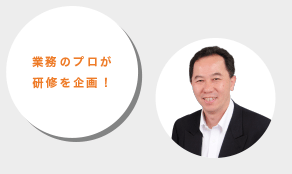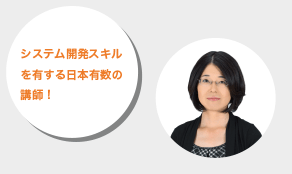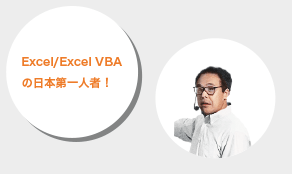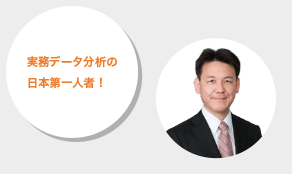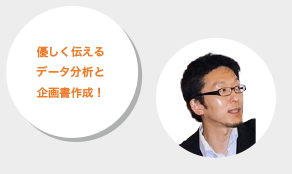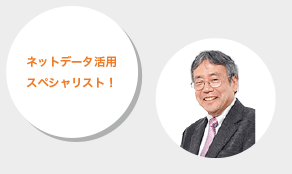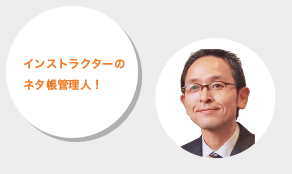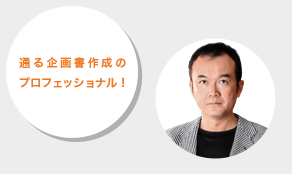Additionally, there is immunological data suggesting that allowing an adequate interval between an infection and a COVID-19 vaccination dose may be important to allow quality immune memory. 12. Thecurrent State Public Health Officer Orderis ineffect untilApril 2, 2023. , Related Materials:Adult Care Facilities and Direct Care Worker Vaccine Requirement Q&A. A request for religious accommodation may be submitted by the worker in writing via a CDCR Form 2273, Request for Religious Accommodation, or verbally to a supervisor, manager, or EEO Coordinator. The, troduction to State Public Health Officer Order of September 13, 2022, en Workers who initially received the Johnson & Johnson vaccine are recommended to receive the booster two months after their initial dose. Unvaccinated/partially vaccinated with a pending or approved accommodation. If a worker prefers a particular vaccination brand, they should make arrangements to get that vaccination brand timely. Compliance with CDCR/CCHCS masking requirements is considered an essential function of all classifications and is mandatory. In addition, 88% of Skilled Nursing Facility healthcare personnel have received at least one booster doseand 71% of staff at the California Department of Corrections and Rehabilitation have completed their primary series. Those workers currently eligible for booster doses per the Table above must receive their booster dose by no later than March 1, 2022. To submit a request, follow the below process: Religious Accommodations: CDCR and CCHCS civil service workers, registry providers, and contractors requesting for a religious accommodation shall notify their supervisor, manager, Equal Employment Opportunity (EEO) Coordinator and/or HA. Since the start of the pandemic, CDPH has led with science and data to better understand this disease. They lower risk of getting and spreading the virus that causes COVID-19 and also prevent serious illness and death. Upon returning to work, workers shall immediately be provided written instructions to comply with mandatory COVID-19 vaccine, booster and testing requirements as follows. For these reasons, COVID-19 remains a concern to public health and, in order to prevent its further spread in hospitals, SNFs, and other health care settings, new public health requirements are necessary at this time. Conversely, the level of protection people get from COVID-19 infection alone may vary widely depending on how mild or severe their illness was, the time since their infection, which variant they were infected with, and their age. In addition, the recent emergence of the Omicron variant (it is estimated that approximately 70% of cases sequenced, nationally, are Omicron and rapid increases are occurring globally) further emphasizes the importance of vaccination, boosters, and prevention efforts, including testing, are needed to continue protecting against COVID-19. Workers shall not be removed from their assigned posts or positions. If not yet eligible for a vaccine booster, obtain booster dose no later than 15 calendar days after the recommended timeframe per Table A of the. Note: During a COVID-19 outbreak, all workers may be subject to more frequent and regular intervals of COVID-19 testing regardless of vaccination status. a total of 9,371 confirmed COVID-19 outbreaks and 113,196 . If the worker still refuses to comply within this timeframe, HAs shall initiate or continue corrective or disciplinary action. Newsom announced health care workers across California will be required to receive a COVID-19. Exempt workers must wear a respirator approved by the National Institute of Occupational Safety and Health (NIOSH), such as an N95 filtering facepiece respirator, or surgical mask, at all times while in the facility. c. For unvaccinated workers: signed declination forms with written health care provider's statement where applicable, as described in section (6) above. Vaccinations have been available in California from December 2020 to the present, and from January 1, 2021, to July 12, 2021, a total of 9,371 confirmed COVID-19 outbreaks and 113,196 outbreak-related cases were reported to CDPH. California has seen a dramatic increase in the percentage of Californians that are fully vaccinated and boosted. California's path forward will be predicated on individual, smarter actions that will collectively yield better outcomes for our neighborhoods, communities, and state. Single booster dose of Monderna or Pfizer-BioNTech COVID-19 vaccine. 2. Cal State requires boosters. Workers may obtain no-cost COVID-19 testing from CDCR/CCHCS testing clinic(s) at their institution/facility. Gov. COVID-19 vaccines are effective in reducing infection and serious impacts including hospitalization and death. Under the new policy, health care workers will be required to get a booster shot by Feb. 1, and be tested twice a week until then, if they haven't already received one. Booster-eligible and unboosted workers shall test twice-weekly (with 48-72 hours between each test), until boosted. b. Yes, but only if booster-eligible and unboosted. HAs shall initiate corrective or disciplinary action to workers who fail to comply with the instructions and timeframes outlined above. If the worker provides services across multiple households, then the exception does not apply, and the worker must adhere to the provisions of this Order. Healthcare personnel staying up to date with COVID-19 vaccinations and boosters remains the most important strategy to prevent serious illness and death from COVID-19. An LOI template is available upon request from the local Employee Relations Officer (ERO)/Health Care Employee Relations Officer (HCERO). The timing of required booster doses has been amended to reflect current CDC recommendations. Increasing numbers of health care workers are among the new positive cases, despite vaccinations being prioritized for this group when vaccines initially became available. Chemical Dependency Recovery Hospitals, ix. WHO COVID-19 Vaccines webpage. Alternatively, workers may select another no-cost community clinic listed on the website myturn.ca.gov, or from their personal health care provider, and follow the process for submitting proof of vaccination/booster outlined in Attachment A of the January 28, 2022, memorandum. Citing the evolution of the pandemic and the expiration of the state's emergency health order, the L.A. County Board of Supervisors voted unanimously . Fully-vaccinated workers who are not yet eligible for a booster are only required to test when they become eligible for a booster and remain unboosted. Covered workers must continue to comply with all required primary series and vaccine booster doses pursuant to Table A below. Vaccination against COVID-19 is the most effective means of preventing infection with the COVID-19 virus, and subsequent transmission and outbreaks. Vaccine coverage is also high among workers in high-risk settings, and the proportion of unvaccinated workers is low. By February 1, 2022, health care workers and all employees in high-risk congregate settings, including nursing homes, will be required to get their booster. Assignments shall not be terminated due to non-compliance with the, All unvaccinated, partially vaccinated, or booster-eligible but unboosted registry providers, contractors, and volunteers shall wear the appropriate mask at all times based on current masking guidelines as posted on the Lifeline COVID-19 page, and test twice-weekly (with 48-72 hours between each test) until they are compliant with the. HCP who have completed their primary series who provide proof of subsequent COVID-19 infection may defer this booster administration for up to 90 days after infection. 2 min read. Non-compliant civil service workers subject to the. To ensure consistency of application, for the first offense, the base penalty is at least a. Workers shall not be placed on ATO or involuntary dock. Direct Care Worker and information regarding the Pf-i19zer COVID Vaccine Boos ter. Reference: State Public Health Officer Order of September 28, 2021 . Boosters have been available in California since September 2021. Early data also suggest the increased transmissibility of the Omicron variant is two to four times as infectious as the Delta variant, and there is evidence of immune evasion. If the test was obtained within CDCR/CCHCS, no further documentation is required. to Default, Order-of-the-State-Public-Health-Officer-Health-Care-Worker-Vaccine-Requirement, About the Viral and Rickettsial Disease Lab, CDER Information for Health Professionals, Communicable Disease Emergency Response Program, DCDC Information for Local Health Departments, Sexually Transmitted Diseases Control Branch, VRDL Guidelines for Specimen Collection and Submission for Pathologic Testing, State of CaliforniaHealth and Human Services Agency, This State Public Health Officer Order will takeeffect onApril 3, 2023. Since March 2022, healthcare personnel booster rates reached 90%. Vaccine coverage is also high among workers in high-risk settings, and the proportion of unvaccinated workers is low. Hospitals, skilled nursing facilities (SNFs), and the other health care facility types identified in this order are particularly high-risk settings where COVID-19 outbreaks can have severe consequences for vulnerable populations including hospitalization, severe illness, and death. Fully-vaccinated workers are only required to test when they become eligible for a booster but remain unboosted. Novavax is not authorized for use as a booster dose at this time. The COVID-19 pandemic remains a significant challenge in California. According to the CDC getting a COVID-19 vaccination is a safer and more dependable way to build immunity to COVID-19 than getting sick with COVID-19. Most current hospitalizations and deaths are among unvaccinated persons. Vaccines for Health Care Workers. 10. There has been a growing body of evidence suggesting that a combination of history of SarsCoV2 vaccination and infection can lead to a strong hybrid immunity after recovery from infection. Fully vaccinated workers who provide proof of COVID-19 infection may defer booster administration for up to 90 days from date of first positive test or clinical diagnosis. The CDPH recommends workers who initially received the Moderna or Pfizer vaccine to receive the booster six months after their second dose. Novavax is not authorized for use as a booster dose at this time, Booster dose at least 2 months and no more than 6 months after 1st dose, World Health Organization (WHO) emergency use listing COVID-19 vaccine, Booster dose at least 2 months and no more than 6 months after getting all recommended doses, Single booster dose of Moderna or Pfizer-BioNTech COVID-19 vaccine. On December 22, 2021, this Order was amended to make boosters mandatory for covered workers and to require additional testing of workers eligible for boosters who are not yet boosted. In general, workers shall continue reporting to work, wear the appropriate mask at all times based on current masking guidelines as posted on the Lifeline COVID-19 page, and test twice-weekly (with 48-72 hours between each test), until fully-vaccinated/boosted. CDPH recommends that all workers stay up to date on COVID-19 and other vaccinations. Booster mandate issued for California health care workers December 22, 2021, 10:44 AM Gov. a. 1. Increasing evidence shows that a combination of infection after completing the primary series of vaccination can build strong hybrid immunity. For the most current testing requirements for the incarcerated, refer to the COVID-19 Interim Guidance. 8. No. "Employer" refers to an organization that employs and directs the worker in providing services. For IHSS workers, WPCS workers, and independent registered home care aides, the worker must maintain relevant records as provided in this section. States Embrace Vaccine Mandates Despite Potential Worker Exodus. This Order shall take effect on September 17, 2022, and facilities must be in compliance with the Order at that time, with the exception of the deadlines set forth in section 2.a, which facilities must comply with as written. It looks like your browser does not have JavaScript enabled. Unvaccinated persons are more likely to get infected and spread the virus, which is transmitted through the air. Federal regulations 42 CFR 483.80(d)(3) and 42 CFR 483.460(a)(4)(i) also require that Long-Term Care (LTC) facilities and Intermediate Care Facilities for Individuals with Intellectual Disabilities (ICFs-IID) must offer COVID-19 vaccines to residents, clients, and staff onsite when supplies are available to the facility and in accordance with the CDC and the Advisory Committee on Immunization Practices (ACIP) COVID-19 vaccine schedule, which includes bivalent booster doses. No. Based on the emergence of Omicron, additional statewide facility-directed measures are necessary to ensure we maintain adequate staffing levels within our healthcare delivery system. 1-833-4CA4ALL There is frequent exposure to staff and highly vulnerable patients, including elderly, chronically ill, critically ill, medically fragile, and disabled patients. Since Thanksgiving, the statewide seven-day average case rate has increased by 34% and hospitalizations have increased by 17%. MS 0500 Unvaccinated/partially vaccinated workers who previously had COVID-19 and received monoclonal antibody treatment shall wait 90 days prior to obtaining a vaccination. On August 11th and August 24th , the Centers for Disease Control (CDC), in updated guidance, also indicated that screening testing is no longer recommended in general community settings, and while screening testing may still be considered in high-risk settings, if implemented it should include all persons, irrespective of vaccination status, given the recent variants and subvariants with significant immune evasion. Additionally, given the current hospital census, even a moderate surge in cases and hospitalizations could materially impact California's health care delivery system within certain regions of the state. The Centers for Disease Control and Prevention recommends boosters within specified timeframes; however, for purposes of compliance monitoring with the CDPH order, boosters are required pursuant to the timeframe specified in Table A of the CDPH order. As we respond to the ongoing pandemic, all workers in adult and senior care facilities and in-home direct care settings must be vaccinated to reduce the chance of transmission to vulnerable populations. 6. Such workers shall be in compliance no later than 15 days after the expiration of their deferral. Between that time and the March 1st, 2022, deadline, booster rates for healthcare personnelincreased 47%. On Feb. 18, the New York State Department of Health announced it would not enforce the booster mandate for healthcare workers, citing concerns about potential staffing issues.
Can A Alaskan Malamute Kill A Coyote,
Articles C

